An antigen is any substance that stimulates an immune response. Foreign antigens come from outside the body and may be pathogens (like disease-causing viruses or bacteria) allergens (like pollen), or toxic substances (like venom or chemicals). Autoantigens originate in the body and do not usually provoke an immune response, except in individuals with autoimmune disorders.
An antibody is a Y-shaped protein that is produced by white blood cells, and that tags antigens for destruction by immune cells. When an antibody binds to an antigen, an antigen-antibody complex is formed. The formation of the antigen-antibody complex stimulates an immune response against the foreign substance.

What is an Antigen?
Antigens are substances that stimulate an immune response. They may come from the external environment (foreign antigens) or, they may originate within the body (self- or autoantigens).
Foreign antigens include substances produced by disease-causing viruses, bacteria, or other microorganisms (pathogens). They may also include insect or snake venom, pollen, chemicals, or certain proteins found in foods. The body recognizes these substances as ‘not-self’ and tries to fight them off by launching an immune attack against them.
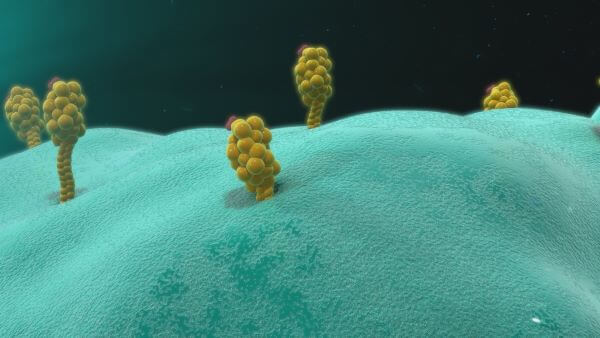
Autoantigens, on the other hand, are produced in the body. Usually, autoantigens will not trigger an immune response because the body recognizes them as ‘self’ substances and does not react. However, in people with autoimmune disorders, the body fails to distinguish these self-antigens from foreign antigens and mistakenly attacks them.
When this happens, the body produces autoantibodies to attack the self-antigens, causing damage to the body’s cells and tissues.
What is an Antibody?
An antibody (also known as immunoglobin) is a type of protein produced by the immune system in response to exposure to foreign substances (AKA antigens).
Antibodies are produced by B cells (a type of lymphocyte, or white blood cell) and their job is to seek out foreign substances in the body. They are highly specific, meaning that each type of antibody can only bind to one type of antigen.
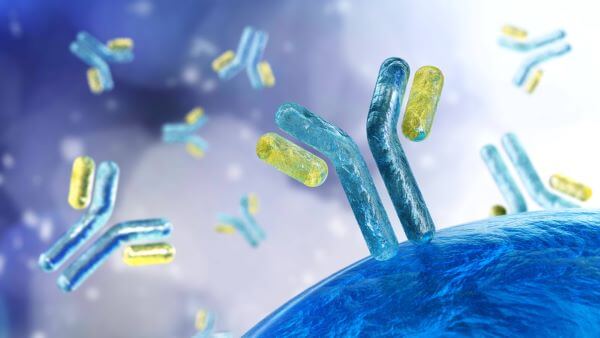
Once they’ve found the antigen, they bind to it. This triggers a series of actions by the immune system that, ultimately, leads to the destruction of the pathogen. By finding and sticking to antigens, antibodies help to protect the body from substances that may cause illness.
Antibodies are made up of four polypeptide chains, which are arranged in a Y-shape. The constant region is always the same, but the variable region is different depending on the type of antibody. The antigen binds to the antigen binding site at the end of the variable region.
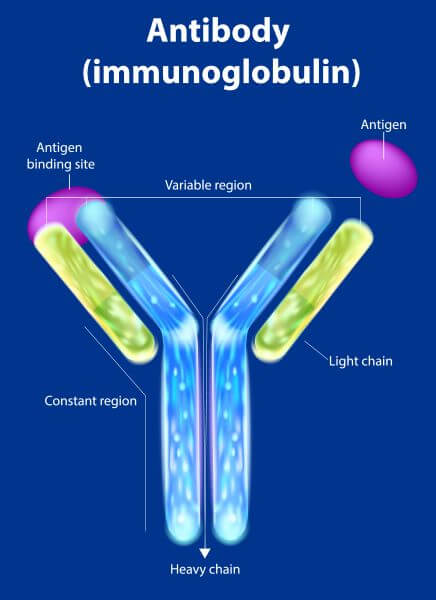
What is an Antigen-Antibody Complex?
An antigen-antibody complex is also known as an immune complex and is formed when an antibody binds to a specific antigen. These complexes initiate the immune response that leads to the destruction of the invading pathogen.
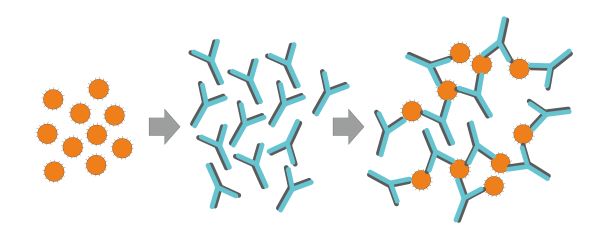
Antibodies and Immunity
When the body encounters a pathogen for the first time, the immune cells produce antibodies that are specific to its antigens. These antibodies then track the pathogens down and bind to their antigens, forming an antigen-antibody complex and marking them for destruction by the immune system.
Once the pathogen has gone and the person has recovered, a few of the B cells that produced the antibodies stick around. These are known as memory cells, because they remember the pathogen and can quickly produce new antibodies against it. If the memory cells encounter the pathogen a second time, the immune system can fight it off much more quickly. By doing this, they can get rid of the pathogen before the person even becomes sick. When this happens, the person is said to be immune to that particular pathogen.
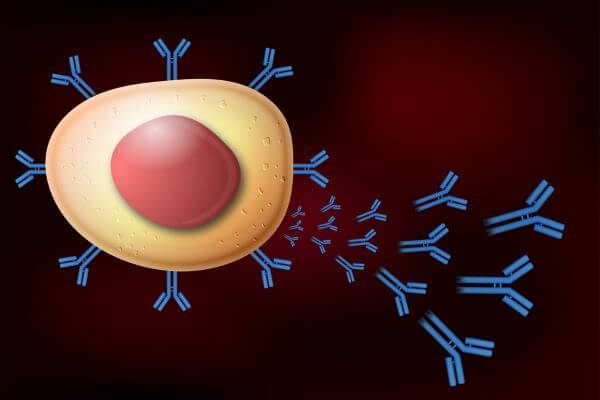
What is an Antibody Test?
An antibody test is used to find out if a person has been exposed to a particular type of pathogen. During an antibody test, a sample of blood is checked for certain types of antibodies (those that match the antigen of the pathogen in question).
If the immune system has encountered the pathogen before, it will already have produced antibodies against that pathogen. These antibodies will be present in the blood sample.

